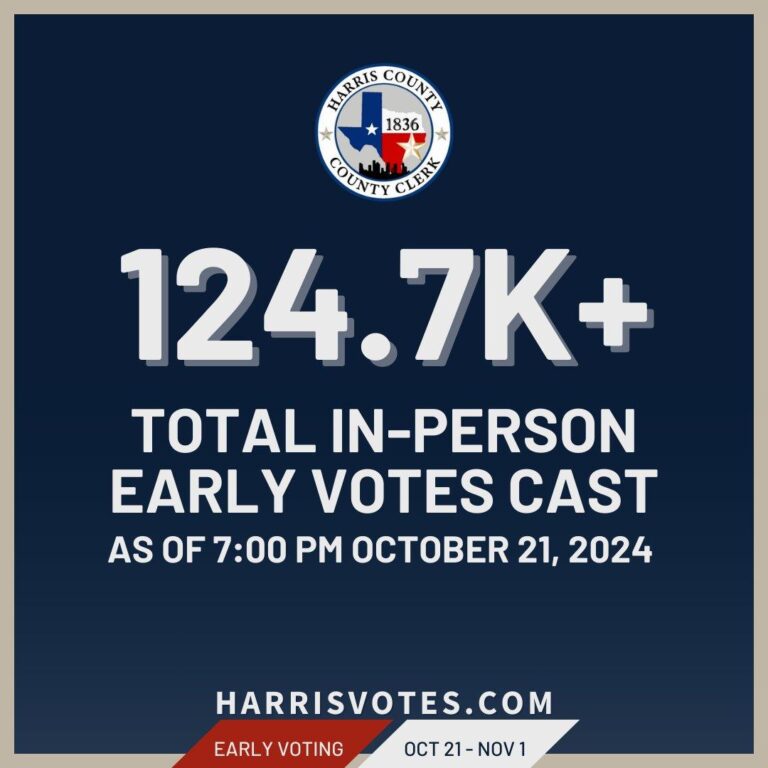Governor Abbott and Harris County Clash Over Postponed Special Election
Governor Abbott Points to Harris County for Election Delay
Governor Greg Abbott has publicly expressed his dissatisfaction with Harris County officials following their decision to delay the special election intended to fill the congressional seat left vacant by Representative Eddie Bernice Johnson. Originally planned to provide timely representation for the district, the election’s postponement has sparked criticism from Abbott, who attributes the hold-up to administrative inefficiencies within the county. This dispute underscores the persistent friction between state leadership and local authorities regarding election administration in one of Texas’s most populous regions.
Highlights of Abbott’s concerns include:
- Questions about the transparency and timing of the postponement announcement
- Claims that Harris County officials are failing to prioritize voter interests
- Urgent calls for rescheduling the election promptly to restore representation
| Official | Position | Stance on Election Delay |
|---|---|---|
| Greg Abbott | Governor of Texas | Insists on immediate election rescheduling |
| Harris County Clerk | Local Election Administrator | Cites administrative obstacles as cause for delay |
| Lina Hidalgo | Harris County Judge | Advocates for patience amid logistical assessments |
Consequences of the Election Delay on Houston’s Voter Engagement and Representation
The deferment of the special election in Houston has raised alarms about its potential to dampen voter participation and weaken political representation. Research consistently shows that election delays can lead to a decline in voter turnout, as extended timelines often cause voter disengagement and confusion. Houston’s rapidly evolving and diverse population is particularly vulnerable to these effects, risking diminished democratic involvement during a pivotal electoral moment.
Notable repercussions include:
- Reduced voter enthusiasm and awareness due to prolonged campaign periods
- Heightened difficulties for grassroots organizations mobilizing marginalized communities
- Potential erosion of public trust in election authorities amid politicized disputes
| Factor | Effect on Voter Turnout | Impact on Political Representation |
|---|---|---|
| Election Postponement | Turnout may drop by up to 15% | Delays in policy advocacy and leadership decisions |
| Voter Fatigue | Increased absenteeism on election day | Less diverse candidate support base |
| Communication Breakdown | Confusion over election scheduling | Weakened accountability to constituents |
Examining the Legal and Operational Obstacles Behind the Election Delay
The postponement reveals complex legal and administrative challenges that have hindered Harris County’s ability to promptly organize the special election. Central to the issue is the tension between statutory deadlines mandated by Texas election law and the county’s capacity to ensure a transparent and efficient voting process. Divergent interpretations of election statutes concerning notification and timing have created legal uncertainty, impeding swift action by election officials. Additionally, operational difficulties such as understaffing and outdated election infrastructure have compounded the delays, raising concerns about the integrity and reliability of the electoral system.
Key challenges identified include:
- Legal uncertainties: Conflicting legal opinions on election timelines have stalled scheduling decisions.
- Resource limitations: The election office faces shortages in personnel and technology necessary for rapid election deployment.
- Coordination issues: Inefficient communication between county and state election bodies has delayed critical approvals and notifications.
| Challenge | Effect | Current Status |
|---|---|---|
| Conflicting legal timelines | Halted election scheduling | Ongoing legal review |
| Staff shortages | Delayed ballot preparation | Active recruitment efforts |
| Inter-agency communication gaps | Late notifications | New coordination protocols implemented |
Strategies to Enhance Efficiency in Future Harris County Special Elections
To prevent similar delays in upcoming special elections, Harris County must adopt a more streamlined and proactive election management framework. Establishing clear, standardized timelines for scheduling elections immediately after a vacancy occurs will facilitate quicker responses. Strengthening collaboration between state and local election officials can clarify roles and minimize bureaucratic delays. Furthermore, integrating advanced digital tools for ballot processing and voter outreach can accelerate election preparations and boost voter participation.
Experts also stress the importance of transparent and consistent communication with the electorate. Providing real-time updates on election dates, polling locations, and candidate information through official websites and social media channels can enhance voter awareness and trust. The table below outlines key recommendations to improve the special election process in Harris County:
| Focus Area | Recommendation | Anticipated Benefit |
|---|---|---|
| Election Scheduling | Set firm deadlines within 14 days of vacancy | Accelerated election organization |
| Inter-Agency Collaboration | Hold regular coordination meetings | Reduced procedural conflicts |
| Technology Integration | Deploy automated ballot systems | Minimized errors and delays |
| Voter Communication | Utilize social media for timely updates | Higher voter turnout and engagement |
Looking Ahead: Resolving the Election Delay Dispute
The ongoing disagreement between Governor Abbott and Harris County officials over the postponed special election highlights the broader challenges of managing elections in a large, complex jurisdiction. As constituents await the filling of the vacant congressional seat, resolving these administrative and legal obstacles is crucial to restoring effective representation and maintaining confidence in the democratic process. Observers will be closely monitoring how both state and local leaders address these issues to ensure timely and fair elections in the future.

